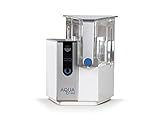Toxic BPA Is All Over Your Receipts – Are BPA Replacements More of the Same?
By Heather Callaghan, Editor
Did you know that you will get 100,000 times more Bisphenol-A (BPA) from a receipt than a plastic water bottle? [1]
This year, I’m doing my taxes with surgical gloves, because one of the biggest secrets is just how much toxic BPA seeps right into the skin. In fact, when triclosan, an antibiotic chemical was still in hand sanitizer, it made our bodies absorb 100x more BPA from receipts!
While we don’t have to worry about triclosan in hand sanitizer anymore thanks to a recent FDA ban, BPA is still plenty toxic in its own right. Bisphenol-A (BPA), a chemical found heavily in receipts and in most plastics, cans, and other types of food and drink packaging is already linked to obesity, infertility and reproductive disorders in both genders, breast cancer, prostrate cancer, behavioral problems, brain impairment, hypertension and more.
Replacements for BPA – such as BPS – are abysmal as well.
[do_widget id=text-16]
Here’s what the American Chemical Society has to say about the latest BPA replacement in development:
Although the U.S and other countries have banned or restricted the use of bisphenol A (BPA) because of environmental and health concerns, it is still used in thermally printed receipts and labels. Now researchers report in a study in the ACS journal Industrial & Engineering Chemistry Research that they have developed potentially safer polymers that could replace BPA for printed papers.
Thermal papers are used for cash register receipts, tickets and labels because they are cheap, easy to use and reliable. For thermal paper to work in printing, it is impregnated with two molecules, a dye and a color developer. The color developer, BPA, causes the paper to react with the dye and change colors when heated. While BPA has many advantages, it can potentially cause various health effects by moving through biological membranes, interfering with hormones and harming the nervous and reproductive systems. Manufacturers have turned to polymeric materials as a potential substitute because they are large and cannot easily move through membranes. Some of polymers tested thus far have had similar properties to BPA, but the developer results have been mediocre. Byeong-Kwan An, Hyun-Jin Kwon and Kang-Hoon-Choi wanted to see if they could produce an alternative developer that would perform as well as BPA.
The researchers focused on phenolic resin polymers because of they are easy to make, inexpensive and will react with the dyes in thermal paper. The team prepared different variations of the polymers and examined their thermal properties, stability and ability to react with the dye on paper. Out of those tested, BPAF-N-type (BPA-formaldehyde novolac) polymers fit the bill — they were stable under high temperatures and reacted with the dye just as well as BPA. One was more suited to general-purpose applications, whereas two of them were more appropriate for papers that need to be used in heated environments.
Does BPAF-N-type (BPA-formaldehyde novolac) sound like a proper replacement?
We can’t say for sure, but the words BPA, formaldehyde and polymers aren’t a reassuring sound.
In our last article on BPA, we made sure to include ways to avoid handling this obesogenic substance. Here are some ways that are specific to receipts.
Minimize your exposure to BPA from receipts:
- Ask for your receipt to be placed in the bag or emailed/texted to you.
- Only handle receipts from the backside, said to be less toxic.
- Handle receipts as few times as possible. Do not ask for receipts you do not need.
- Handle your tax receipts wearing surgical gloves (ask for a pair at the doctor’s office).
- Read this guide on draining BPA from your body.
- Eat goji berries and take plenty of vitamin B3!!
[1] Documentary: Why Am I Still Fat?
SEE: These Companies Put BPA And Other Chemicals In Their BPA-Free Cans
Tell your friends!
DISCLAIMER: This article is not intended to provide medical advice, diagnosis or treatment.
This article (Toxic BPA Is All Over Your Receipts – Are BPA Replacements More of the Same?) was created by and appeared first at Natural Blaze. It can be reshared with attribution but MUST include link to homepage, bio, intact links and this message.
 Heather Callaghan is an independent researcher, writer, speaker and food freedom activist. She is the Editor and co-founder of NaturalBlaze as well as a certified Self-Referencing IITM Practitioner.
Heather Callaghan is an independent researcher, writer, speaker and food freedom activist. She is the Editor and co-founder of NaturalBlaze as well as a certified Self-Referencing IITM Practitioner.
Get a nifty FREE eBook – Like at Facebook, Twitter and Instagram.



